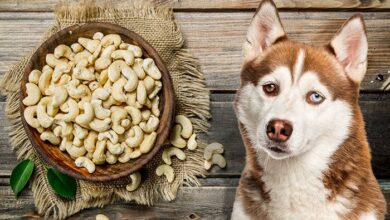
Bok choy, a vibrant leafy green vegetable often found in Asian cuisine, is well-known for its impressive nutritional profile. Packed with vitamins A, C, and K, as well as calcium and antioxidants, this vegetable offers a range of health benefits not only for humans but potentially for dogs as well. Many pet owners naturally wonder, Can Dogs Eat Bok Choy? The answer is yes—with careful preparation and moderation, bok choy can be a nutritious and tasty treat for your furry friend.
This article explores seven amazing reasons to consider adding bok choy to your dog’s diet safely, highlighting its benefits, safety considerations, and practical feeding tips to ensure your dog enjoys this healthy vegetable without risks.
Can Dogs Eat Bok Choy?
What Is Bok Choy?
Bok choy is a leafy green vegetable that looks a bit like a small cabbage with crisp white stalks and dark green leaves. It comes from China and is a member of the Brassica family, which also includes broccoli, kale, and cauliflower. This family is known for its nutritious veggies that are often good for both humans and dogs in moderation.
Bok Choy Nutrition for Dogs
Bok choy is low in calories and packed with vitamins A, C, and K. It also has calcium, fiber, and antioxidants, which can be helpful for your dog’s immune system and digestion. Its crunchiness makes it a refreshing treat, especially during warm weather.
Bok Choy Vegetables Dogs Can Eat
- Baby bok choy: Tender and easy to digest for most dogs.
- Regular bok choy: Can be given in small, cooked portions.
Always serve bok choy plain—no seasoning or oil. It’s best to cook it lightly or steam it so your dog can digest it well.
Popular Uses of Bok Choy
Humans often add bok choy to stir-fries, soups, and salads for its mild flavor and crunch. For dogs, it works best as a healthy snack or mixed with their regular food to add variety and extra nutrients. Just remember to avoid giving too much, as too many Brassica vegetables can cause tummy upset.
Is Bok Choy Safe for Dogs?
Bok choy belongs to the cabbage family and contains vitamins A, C, and K, plus fiber. These nutrients can support your pup’s health. However, like all new foods, it’s important to feed it carefully.
How to Feed Bok Choy Safely
Before offering bok choy, keep these tips in mind:
- Preparation: Wash the leaves thoroughly to remove any dirt or pesticides. Chop into small, bite-sized pieces to prevent choking.
- Portion Size: Start with a small amount—just a few pieces—to see how your dog reacts.
- Gradual Introduction: Add bok choy slowly into their diet to avoid stomach upset.
- Watch for Issues: Too much can cause gas or diarrhea in sensitive dogs.
Possible Risks
While bok choy toxicity in dogs is very rare, it’s best to keep an eye out for:
- Choking Hazard: Large or tough pieces can be hard to chew.
- Digestive Upset: Overfeeding can lead to discomfort, so moderation is key.
In short, bok choy can be a safe and nutritious snack when prepared properly and given in small amounts. Always observe your dog after trying a new food. If you notice any unusual signs like vomiting or diarrhea, stop feeding bok choy and consult your vet.
7 Amazing Health Benefits of Bok Choy for Dogs
1.Improves Vision-Why Bok Choy Is Good for Dogs
One of the special benefits of bok choy is that it helps improve vision. Here’s how:
- Rich in Vitamin A: This vitamin is important for healthy eyes and good vision in dogs.
- Packed with Antioxidants: These help protect your dog’s eyes from damage caused by free radicals, keeping their vision sharp as they age.
2.Why Bok Choy is Good for Your Dog’s Heart
Bok choy contains several important vitamins and minerals that help keep your dog’s heart strong and healthy:
- Folate: Helps create healthy red blood cells, which support overall heart function.
- Vitamin B6: Assists in maintaining proper nervous system and heart health.
- Magnesium: Important for muscle function, including the heart muscle.
- Vitamin K: Plays a key role in blood clotting and heart health.
3.Strengthens Bones with Calcium and Vitamin K
Bok choy is packed with nutrients that help keep your dog’s skeleton strong:
- Calcium: Essential for building and maintaining strong bones and teeth. It helps prevent fractures and supports healthy muscle function.
- Vitamin K: Plays a key role in bone health by assisting calcium absorption and bone mineralization.
Adding a little bok choy to your dog’s diet can be a tasty way to support their bones, especially as they age or recover from injuries.
4.Aids Digestion with High Fiber Content
One of the best things about bok choy is its fiber. Fiber is great for your dog’s digestive system. Here’s how bok choy helps:
- Prevents Constipation: The fiber in bok choy adds bulk to your dog’s stool, making it easier to pass.
- Supports Gut Health: Fiber feeds good bacteria in the gut, which keeps digestion running smoothly.
- Promotes Regular Bowel Movements: If your dog sometimes struggles with tummy troubles, a little bok choy can help keep things moving.
5.Boosts Immune System (Vitamin C and Antioxidants)
Bok choy is a great source of vitamin C and antioxidants, which work together to help boost your dog’s immune system. Here’s how:
- Vitamin C helps fight off illnesses and keeps your dog feeling energetic.
- Antioxidants protect your dog’s cells from damage caused by harmful free radicals.
- A stronger immune system means your dog is better equipped to handle infections and stay healthy.
6.Low-Calorie Treat
Bok choy is very low in calories, which makes it a great option if your dog needs to watch their weight. Unlike many treats loaded with fats and sugars, bok choy offers a healthy crunch without extra calories.
Why Bok Choy Can Be Good for Dogs
- Low in Calories: Perfect for dogs on a diet or those prone to weight gain.
- Rich in Nutrients: Contains vitamins A, C, and K which support your dog’s immune system and overall health.
- Hydrating: High water content helps keep your dog hydrated.
7.Hydration Support
One of the best benefits of bok choy for dogs is its high water content. Here’s why that matters:
- Keeps dogs hydrated: Especially on hot days or after a long walk, bok choy can help your dog stay hydrated because it’s made up mostly of water.
- Supports healthy digestion: That water helps keep your dog’s digestive system running smoothly.
- Low in calories: Bok choy is light and refreshing, making it a great low-calorie snack.
Just be sure to wash bok choy thoroughly and serve it plain—no seasonings or oils. Also, chop it into small pieces to avoid choking.
How to Safely Feed Bok Choy to Your Dog
Before offering bok choy, it’s important to prepare it carefully. Here are some simple steps to keep your dog safe and happy:
- Wash thoroughly: Rinse bok choy under cool water to remove dirt, pesticides, or chemicals.
- Chop into small pieces: Cut bok choy into bite-sized bits to prevent choking, especially for small dogs.
- Cook it lightly: Steaming or lightly cooking bok choy makes it easier for your dog to digest. Avoid raw bok choy for sensitive stomachs.
- Skip the seasoning: Never add salt, garlic, onions, or spices. Plain bok choy is best for your dog’s health.
Tips for Feeding Bok Choy to Dogs
- Introduce bok choy slowly, starting with a small amount to see how your dog reacts.
- Watch for any signs of stomach upset, like vomiting or diarrhea.
- Always consult your vet before adding any new food to your dog’s diet, especially if they have health issues.
Why It Matters
Feeding bok choy to dogs as a treat can offer fiber, vitamins, and minerals. When you prepare it right, it’s a crunchy, healthy snack your dog may love. Just remember: safe bok choy preparation for dogs is key to keeping your furry friend happy and healthy!
Potential Risks of Feeding Bok Choy to Dogs
Bok choy is a leafy green vegetable that many people enjoy. But what about sharing it with your furry friend? While bok choy can be safe in small amounts, there are some important risks to keep in mind.
Overfeeding and Digestive Issues
Giving your dog too much bok choy can cause tummy troubles, such as:
- Gas
- Bloating
- Diarrhea
These symptoms happen because dogs’ digestive systems aren’t used to large amounts of vegetable fiber. Always start with a tiny amount to see how your dog reacts.
Allergic Reactions
Some dogs may have bok choy allergies. Watch for signs like:
- Itchy skin
- Frequent scratching or licking
- Swelling around the face or paws
- Vomiting or diarrhea
If you notice any allergic symptoms, stop feeding bok choy and check with your vet right away.
Toxic Seasonings in Bok Choy Dishes
Many bok choy recipes include ingredients that are toxic to dogs, such as:
- Garlic
- Onions
These can cause serious health problems, even in small doses. Never feed your dog bok choy cooked with these or any harmful seasonings.
Importance of Moderation
To avoid bok choy side effects dogs may face, limit it to no more than 10% of your dog’s daily calories. Treat it as an occasional snack, not a meal replacement.
Other Safe Vegetables for Dogs to Try
If your dog enjoys bok choy, there are other dog-friendly vegetables you can try. These healthy vegetables for dogs offer great nutrients and variety:
- Spinach
Rich in iron and vitamins, spinach supports your dog’s blood health. Feed in moderation because too much can cause digestive upset. - Broccoli
Packed with fiber and vitamin C, broccoli helps digestion and immunity. Give small, cooked pieces to avoid gas or irritation. - Carrots
Crunchy and full of beta-carotene, carrots promote good eyesight and dental health. Raw or cooked carrots make a great low-calorie treat.
Conclusion
Bok choy can be a healthy and tasty treat for your dog when given properly. It offers key nutrients and fiber that support your dog’s well-being. Remember to introduce it slowly and watch for any signs of discomfort. As always, check with your vet before adding new foods to your dog’s diet.
FAQ
Can dogs eat raw bok choy?
Yes, dogs can eat raw bok choy in small amounts. Wash it well and chop it into bite-sized pieces. Raw bok choy is safe but may cause gas if eaten in large amounts. Always introduce it slowly to your dog’s diet.
How much bok choy can my dog eat daily?
A few small pieces of bok choy are enough for most dogs. Large dogs may have up to half a cup, while small dogs should get only a few bites. Too much can upset their stomach, so moderation is important.
Is bok choy good for puppies or older dogs?
Yes, bok choy is safe for puppies and older dogs when fed in small portions. It provides fiber, vitamins, and antioxidants. Puppies and seniors may have sensitive stomachs, so start with tiny amounts and watch for any signs of discomfort.
What vegetables should I avoid feeding my dog?
Dogs should not eat onions, garlic, leeks, or chives because they are toxic. Avoid raw potatoes, mushrooms, and large amounts of corn. Stick to dog-safe vegetables like carrots, cucumbers, green beans, and bok choy in moderation for safe snacking.
Can bok choy help dogs with digestion?
Yes, bok choy can support digestion because it’s high in fiber and water. It may help regulate bowel movements and keep your dog hydrated. Too much fiber, however, can cause diarrhea or gas, so keep servings small and balanced.



